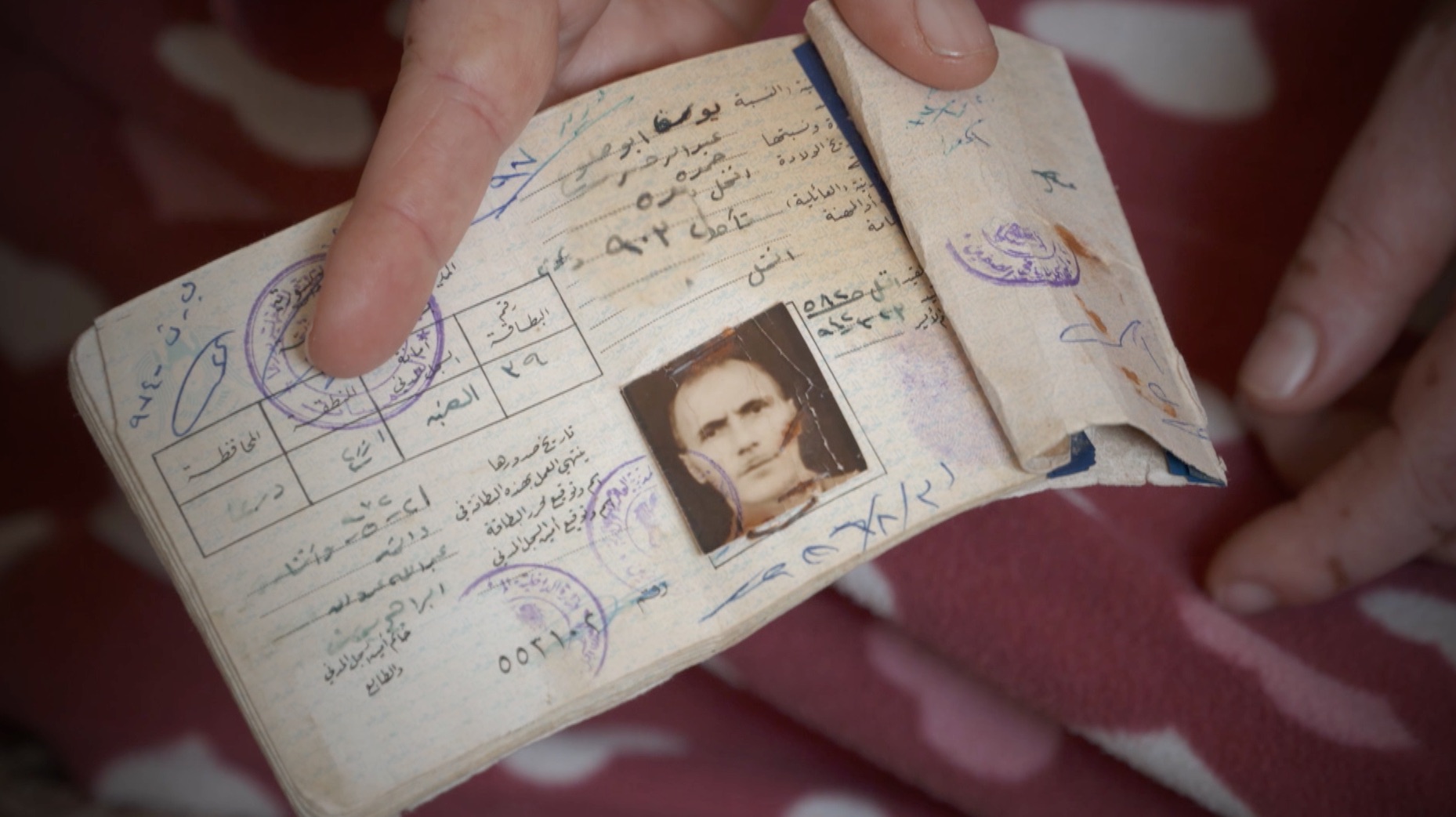 Nejmeh embraces her father at Za'atari camp.
Nejmeh embraces her father at Za'atari camp.UNHCR/Nasreddine Touaibia
Nejmeh embraces her father at Za'atari camp.
UNHCR/Nasreddine Touaibia
A Very Old Man in Za’atari
After living in Syria for more than a century, Yousef had to be convinced to flee the fighting and seek safety in Jordan.
This is a story of love and prayer, of war and exile, of cigarettes and a longing for home. It is the story of one man, a man who counts his life in centuries.
Yousef lies on his bed in the caravan, watching carefully as the visitors arrive. His handshake is firm. In his other hand he clutches his prayer beads.
Yousef is a very old man. His official Syrian family book proves it. The date of his birth is there – January 1, 1903. He is 113.
His daughter Nejmeh leans over and kisses him. He whispers something. She laughs and hands him a cigarette.
“I forbade him to smoke because he is old,” she says. “But I feel bad for him, my heart melts. So I give him one.”

Yousef says he's been able to live such a long life thanks to prayer, healthy natural food and lots of smoking. UNHCR/Alexandre St-Denis
In fact, according to his daughter, he claims that cigarettes are part of his secret for an immensely long life – prayer, healthy natural food and lots of smoking.
“His faith is strong. He always prayed and fasted. Even though he is bedridden, he always holds his prayer beads. And he always praises God.”
Now Yousef must pray and praise in exile. His home is Za’atari refugee camp, across the border from Dara’a, the Syrian region where he lived for more than a century. Za’atari began as a collection of tents in the desert. It is now a settlement of ordered rows of caravans, home to more than 79,000 people, with nine schools and two hospitals. And 3,000 shops run by refugees.
“He was sad when we told him we wanted to leave.”
Every resident here is a refugee from the war. Yousef is the oldest. He may be one of the oldest men in the world.
He and his family came to Jordan two years ago, after the fighting and bombing had come perilously close.
“He was sad when we told him we wanted to leave,” Nejmeh says. “He didn’t want to. When we were back in Syria, we were happy. Those were beautiful days. We never thought we would end up like this. Everything now has become a memory.”
Among those memories for Yousef are impressions of his first marriage, which, according to his official family booklet, took place in 1930. Most of his life was spent peacefully, with his farm and his shop, and his three children and 160 more descendants spread over three generations nearby. The war has scattered them across continents. Some grandchildren are now in Germany, others in Sweden, still others as far away as Canada.

According to his official family booklet, Yousef was born on 1 January 1903, and his first marriage took place in 1930. UNHCR/Alexandre St-Denis
Nejmeh remains at his side, along with her 16-year-old son, Ahmed, born almost a century after his grandfather. Theirs is a story of love. Yousef moved in with Nejmeh after her husband died 12 years ago. Now she and her son care for him tenderly.
“He made me promise, if he dies, to bury him in Syria.”
Exile has diminished Yousef. In the past two years he has lost his hearing and the use of his legs. It pains Nejmeh.
“If I could,” she says, “I would give him another soul so he could live, and a new body so he could walk.”
Yousef wishes, not for new legs, but for a final return home.
“He tells me he wants to go back,” she says. “He made me promise, if he dies, to bury him in Syria.”
